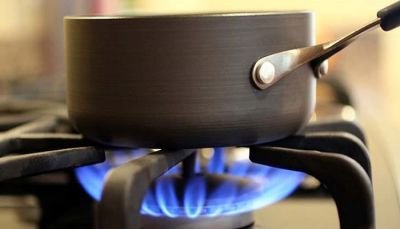There has been a recent surge in the number of explosion accidents recorded from Liquefied Petroleum Gas in Nigeria. The series of accidents occurred either at the LPG depots during the purchase of the fuel or at homes during the use of the gas in cooking. From the LPG depot explosion in Osogbo last year to the recent one in Ogun state, LPG is fast becoming a very unsafe domestic cooking fuel in the country.

I have been a passionate advocate for energy poverty eradication in the country using sustainable models. In the eradication of energy poverty in the country, cooking fuels form a very critical factor in achieving this goal in Nigeria.
I strongly believe the kitchen should be a place where nourishing meals are prepared not a place where the health of individuals is being snatched away through indoor smokes and elongated cooking hours. It is in the quest for safe and sustainable energy models for households that LPG gave the sweet spot. In fact in the LPG ranks highest in the energy ladder for domestic cooking fuels.
How do we get to the point where this safe cooking gas has become the threat to the lives of the individuals using it.
Recent Cooking Gas Explosions: An existential threat to the adoption of LPG in Nigeria
Nigeria, still in its infancy in the rate of adoption of LPG as the prime cooking fuel now faces another threat to LPG further adoption to its use due to the rising explosion cases. This led to the recent conference by the Nigerian Association of LPG Marketers in stopping this threat in its tracks.
NALPGM
The national body in Nigeria overseeing the downstream activities in the sale of cooking gas is the NALPGM. The National Association of LPG Marketers held a stakeholders meeting in Port Harcourt a few weeks ago. The meeting aimed at curbing cooking gas explosions among other biting issues around cooking gas in the country had extensive debates around the root cause of the cooking gas explosions, an otherwise safe gas, in the country.
Propylene Rich Feed (PRF) Gas.

Investigations into the explosion cases had identified the adulteration and outright exchange of LPG by PRF. The gas with a significantly high Propylene is meant for industrial use alone. Investigations have shown that some of the marketers have been selling this PRF to unsuspecting end users, and by extension contributing significantly to explosion cases of cooking gas in homes across the country.
While the communique has addressed some responsibilities to the regulators (DPR, PPMC) in stopping the further sales of PRF as LPG in the country, I think it has failed to address a very important point on how unsuspecting consumers will protect themselves against these adulterated fuels in the short term.
Identifying PRF will be the core of our discussion on perspectives tomorrow. Simple precautions on how to detect PRF, thereby, getting fuel and not explosives into our kitchen will be extensively discussed tomorrow.
What other ways do you think we can keep this cooking gas safety?
Quite enlightening! I will be waiting to read the complete part tomorrow.
I guess it is because we are new to the system and the bad eggs in LPG retail system. One of the precaution is to stop visiting road side retailers for LPG and timely safety gingle will help too.
YOu captured most part of the issues.
Profiteers most times capitalize on the ignorance of their victims, and I strongly think this is the case with adulterated LPG in Nigeria.
Not visiting road side retailers will help too, but one of the model we proposed to increase the uptake of LPG is to make the fuel available and close to the consumers like the traditional kerosene.
We will expatiate on this tomorrow @shakz, thanks for reading.